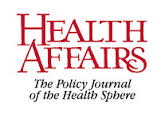PA Safety-Net Hospitals Mean Jobs
While providing most of the care to Pennsylvania’s Medicaid and uninsured populations, the state’s 41 private safety-net hospitals also employ more people than other hospitals and pay better wages than most employers.
 They also are among the biggest employers in their communities, drive local economic development, and generate millions in local and state tax revenue.
They also are among the biggest employers in their communities, drive local economic development, and generate millions in local and state tax revenue.
As state lawmakers consider Pennsylvania’s FY 2015 budget, the Safety-Net Association of Pennsylvania urges them to preserve adequate funding for the state’s Medicaid program so these hospitals can continue their work serving Pennsylvanians in need and functioning as one of the state’s major economic engines.
Read more about the outsized role private safety-net hospitals play in Pennsylvania’s health care safety net and its economy in the new SNAP paper “Pennsylvania Safety-Net Hospitals: Economic Engines Driving Pennsylvania Communities,” which can be found here.





